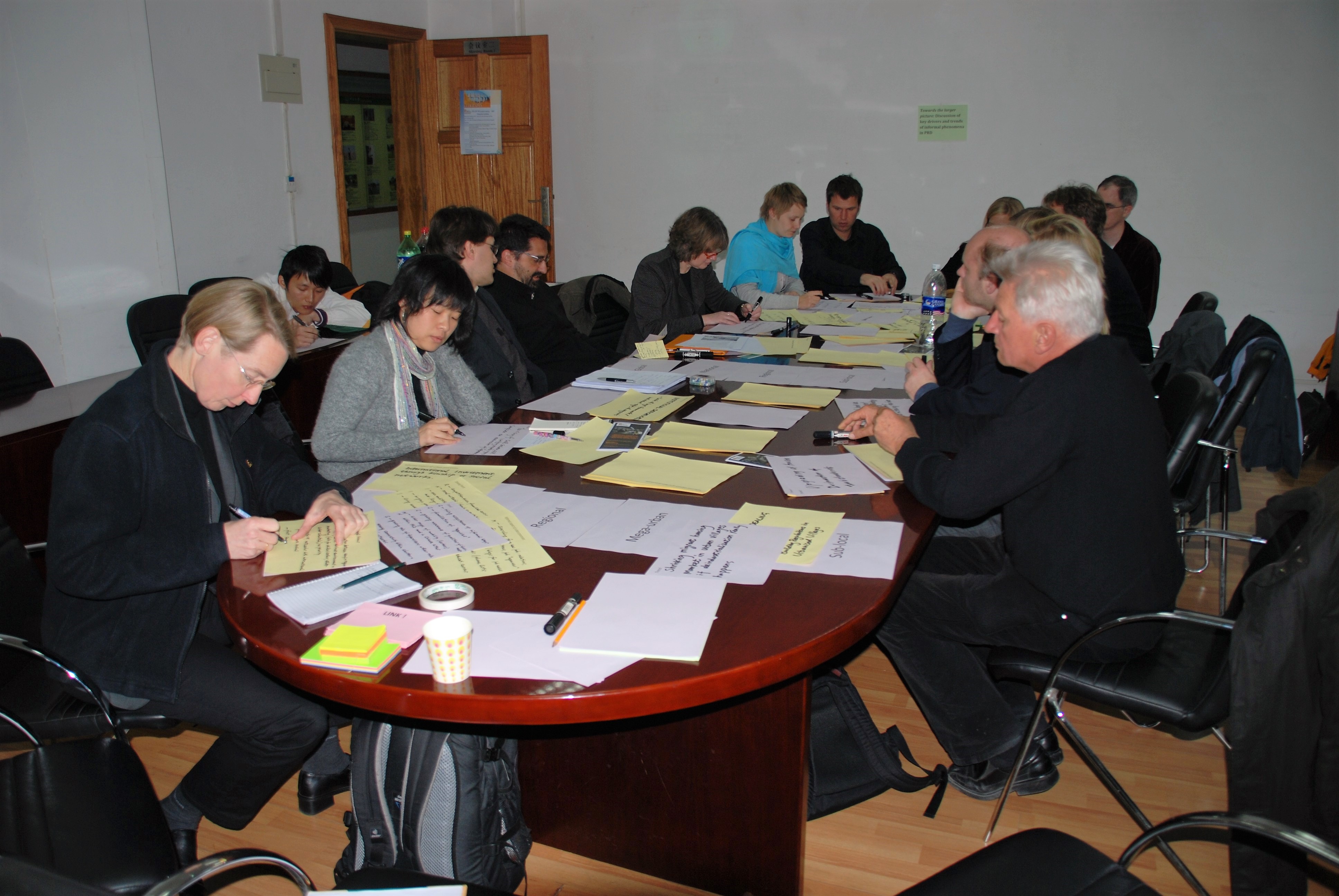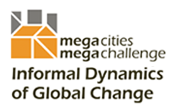Coordination of the Priority Programme
The topic, size and disciplinary diversity of the research programme required a differentiated coordination and steering strategy - 'classic' hierarchical, linear and top-down steering were not adequate, given the complexity of the research subject itself, the interdiscliplinary and international setting and the administrative independence of the research projects.
The following principles guided the coordination of the programme:
 Rather than organizing information flow and knowledge generation as a top-down process, the SPP itself was conceptualized as a complex (research) system;
Rather than organizing information flow and knowledge generation as a top-down process, the SPP itself was conceptualized as a complex (research) system;- Voluntary communication and cooperation were seen as the most important mechanisms of inter-project and inter-personal collaboration; thus the strategy was based on identifying topics and approaches with high mutual benefits and offering platforms for joint outputs;
- Leaving a high degree of intellectual freedom to individual researchers, but (re)focus discourses on key concepts and epistemic goals in frequent meetings and workshops.
In the first phase of the programme, the foundations for productive cooperation were laid: communication structures were established, possible cooperation constellations of individual researcher were identified, and an atmosphere of trust and a culture of mutual understanding, acceptance and exchange was established.
The second and third phase saw a shift towards sustaining those linkages, the intensified discussion of topics relevant for the overall programme, and offering platforms for the production of joint outputs. The scope of representation and cooperation was broadened, especially with the other two megacity research programmes (BMBF, Helmholtz) in Germany.
Key activities of the coordination project involved:
- Organisation of regular meetings and workshops
- Annual symposium of all German project members, with research partners from China and Bangladesh and external experts, held in various places in Germany,
- Regional conferences in Bangladesh and China every two years, with all partners from the respective country and some partners from the other country, as well as representatives of all German projects,
- Regular workshops on key theoretical concepts and publication projects,
- Annual Young Researchers’ Workshop as an exchange platform for the PhD and PostDoc candidates.
- Establishing and maintaining the SSP website and a continuous news exchange,
- Organisation of platforms for joint and interdisciplinary publications,
- Encouraging the research partners to engage in cooperation with foreign research institutions,
- In each research region the establishment of Local Contact Persons (LCP) was strived for, as far as was possible within the administrative limits given. The LCPs facilitated the actual scientific fieldwork (e.g. organisation of local workshops and conferences, helping with research permits and visa, setting up contact with authorities).



